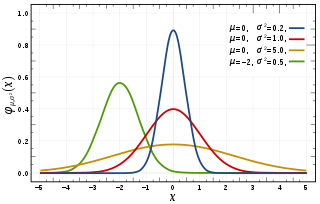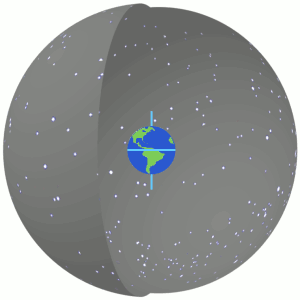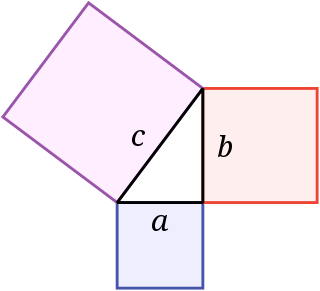Conservatism is a political and social philosophy promoting traditional social institutions in the context of culture and civilization. The central tenets of conservatism include tradition, hierarchy, authority, and property rights. Conservatives seek to preserve a range of institutions such as religion, parliamentary government, and property rights, with the aim of emphasizing social stability and continuity. The more traditional elements—reactionaries—oppose modernism and seek a return to "the way things were".

In probability theory, the normaldistribution is a very common continuous probability distribution. Normal distributions are important in statistics and are often used in the natural and social sciences to represent real-valued random variables whose distributions are not known. A random variable with a Gaussian distribution is said to be normally distributed and is called a normal deviate.

The Noble Eightfold Path is an early summary of the path of Buddhist practices leading to liberation from samsara, the painful cycle of rebirth.

A political spectrum is a system of classifying different political positions upon one or more geometric axes that represent independent political dimensions.

Right ascension is the angular distance of a particular point measured eastward along the celestial equator from the Sun at the March equinox to the point above the earth in question. When paired with declination, these astronomical coordinates specify the direction of a point on the celestial sphere in the equatorial coordinate system.

The Second Amendment to the United States Constitution protects the right of the people to keep and bear arms and was adopted on December 15, 1791 as part of the Bill of Rights.

In astronomy, a celestial coordinate system is a system for specifying positions of celestial objects: satellites, planets, stars, galaxies, and so on. Coordinate systems can specify an object's position in three-dimensional space or plot merely its direction on a celestial sphere, if the object's distance is unknown or trivial.
Right-wing politics hold that certain social orders and hierarchies are inevitable, natural, normal, or desirable, typically supporting this position on the basis of natural law, economics, or tradition. Hierarchy and inequality may be viewed as natural results of traditional social differences or the competition in market economies. The term right-wing can generally refer to "the conservative or reactionary section of a political party or system".
In human biology, handedness is a better, faster, or more precise performance or individual preference for use of a hand, known as the dominant hand; the less capable or less preferred hand is called the non-dominant hand. Men are somewhat more likely to express a strongly dominant left hand than women. It is estimated that between 70 and 95 percent of the world's population is right-handed.

Women's suffrage is the right of women to vote in elections. Beginning in the late 1800s, women worked for broad-based economic and political equality and for social reforms, and sought to change voting laws in order to allow them to vote. National and international organizations formed to coordinate efforts to gain voting rights, especially the International Woman Suffrage Alliance, and also worked for equal civil rights for women.
Likud, officially the Likud-National Liberal Movement, is a centre-right to right-wing political party in Israel. A secular party, it was founded in 1973 by Menachem Begin and Ariel Sharon in an alliance with several right-wing parties. Likud's landslide victory in the 1977 elections was a major turning point in the country's political history, marking the first time the left had lost power. In addition, it was the first time in Israel that a right-wing party won the plurality of the votes. However, after ruling the country for most of the 1980s, the party lost the Knesset election in 1992. Nevertheless, Likud's candidate Benjamin Netanyahu did win the vote for Prime Minister in 1996 and was given the task of forming a government after the 1996 elections. Netanyahu's government fell apart after a vote of no confidence, which led to elections being called in 1999 and Likud losing power to the One Israel coalition led by Ehud Barak.
The Right Honourable is an honorific style traditionally applied to certain persons and collective bodies in the United Kingdom, Canada, Australia, New Zealand, Fiji, some other Commonwealth realms, the English-speaking Caribbean, Mauritius, Zimbabwe, and occasionally elsewhere. The term is predominantly used today as a style associated with the holding of certain senior public offices in the United Kingdom, Canada, and New Zealand.

Left-hand traffic (LHT) and right-hand traffic (RHT) are the practice, in bidirectional traffic, of keeping to the left side or to the right side of the road, respectively. A fundamental element to traffic flow, it is sometimes referred to as the rule of the road.
Far-right politics are politics further on the right of the left-right spectrum than the standard political right, particularly in terms of extreme nationalism, nativist ideologies, and authoritarian tendencies.
Centre-right politics or center-right politics, also referred to as moderate-right politics, are politics that lean to the right of the left–right political spectrum, but are closer to the centre than other right-wing politics. From the 1780s to the 1880s, there was a shift in the Western world of social class structure and the economy, moving away from the nobility and mercantilism, as well as moving towards the bourgeoisie and capitalism. This general economic shift towards capitalism affected centre-right movements such as the British Conservative Party, that responded by becoming supportive of capitalism.
Fundamental rights, the basic and civil liberties of the people, are protected under the charter of rights contained in Part III of the Constitution of India..

Freedom of speech is a principle that supports the freedom of an individual or a community to articulate their opinions and ideas without fear of retaliation, censorship, or legal sanction. The term "freedom of expression" is sometimes used synonymously but includes any act of seeking, receiving, and imparting information or ideas, regardless of the medium used.

In mathematics, the Pythagorean theorem, also known as Pythagoras' theorem, is a fundamental relation in Euclidean geometry among the three sides of a right triangle. It states that the square of the hypotenuse is equal to the sum of the squares of the other two sides. The theorem can be written as an equation relating the lengths of the sides a, b and c, often called the "Pythagorean equation":

In politics, centrism—the centre or the center —is a political outlook or specific position that involves acceptance or support of a balance of a degree of social equality and a degree of social hierarchy, while opposing political changes which would result in a significant shift of society strongly to either the left or the right.

The alt-right, or alternative right, is a loosely connected far-right, white nationalist movement. The term is ill-defined, having been used in different ways by various groups and individuals. A largely online movement, the alt-right is found primarily in the United States, where it originated, although alt-rightists are also present elsewhere in the world. Constituent groups that associate with the "alt-right" label have been characterised as hate groups.











